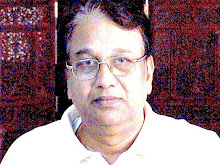There seems some confusion on the supremacy of Parliament. Those opposing Anna Hazare’s Jan Lokpal Bill are worried that the supremacy of Parliament is being eroded by the ‘unconstitutional’ protest of Anna and team and that since the bill is before Parliament all public action should cease. Under normal circumstances, as long as overwhelming number of people have full faith in this institution these arguments have validity. But these are not normal circumstances. If the overwhelming response to Anna’s movement is any indication, ‘People’ are tired of the erupting scams and vexed with the failure of the government in taking any corrective action till the Supreme Court stepped in and ordered the Government to act.
In a democracy, it is the ‘People’ who elect Parliament or Legislative Assemblies, to legislate on their behalf and monitor the functioning of the Government. Once elected, the Parliament or the Legislators can not ignore the will of the ‘People’ and become totally self-serving as is the common perception at this moment on the issue of tackling corruption. Unfortunately the constitution does not provide for recall of elected Parliamentarians or Legislators when they become dysfunctional or self-serving. Lokpal Bill in its present form was introduced in Parliament by Sri Y.B.Chavan, way back in 1968 and was buried silently without even a trace. A helpless A.B.Vajpayee had to lament, then, in Parliament “We have the voice, You have the votes”. Had the Lokpal Bill of 1968 incorporated some deterrent provisions as suggested by Parliamentarians and was enacted by the Parliament, the menace of corruption, if not eliminated completely would not have spread, at least not so alarmingly. The most disturbing factor today is such a rampant corruption involving the highest echelons of government is defended by the powers that be, by supporting stringent punishment to whistle blowers.
What worries the common man in this country today is not the quantum of black money only but lack of sincerity of the government in taking punitive action against the people amassing wealth by illegal means. The common man is also worried that the electoral system is vitiated by the muscle power and money bags acquired by political patronage which created a new class of mafia, imperiling the very democratic system we so proudly boast of.
In these circumstances, when Parliament’s representative character is being gradually eroded, what one can expect of a peace loving law-abiding citizen of this country ? Should he wait for the term of the Parliament to end and elect a new Parliament to fulfill his dreams, which he, any way, has been doing for the last 60 years? Or should we find fault with him for exercising his constitutional right to protest peacefully so that the Parliamentarians can gauge the will of the People and come clean on the matter the people are agitating about. Obviously, it is not wiser to wait till the end of the tenure of the House and allow the perceived damage to percolate and perpetuate.
On so many issues in the past, various groups have taken out processions and protest marches even while the bills are pending in Parliament. The most glaring example is the Women's Reservation Bill that has been with the Parliament for decades but whenever a discussion is planned, some interest groups threaten agitation and everyone in Government and the Parliament develops cold feet.
It does not augur well for our democracy to raise the impertinent questions whether the Parliament is sovereign or a peaceful protest over any bill that is pending, unconstitutional. Even technically and constitutionally, the sovereignty under Indian Constitution does not lie with any single institution in all times. The Parliament is neither sovereign nor supreme. The People are always sovereign, as the opening lines of Preamble to the Constitution clearly state “We the people of India
